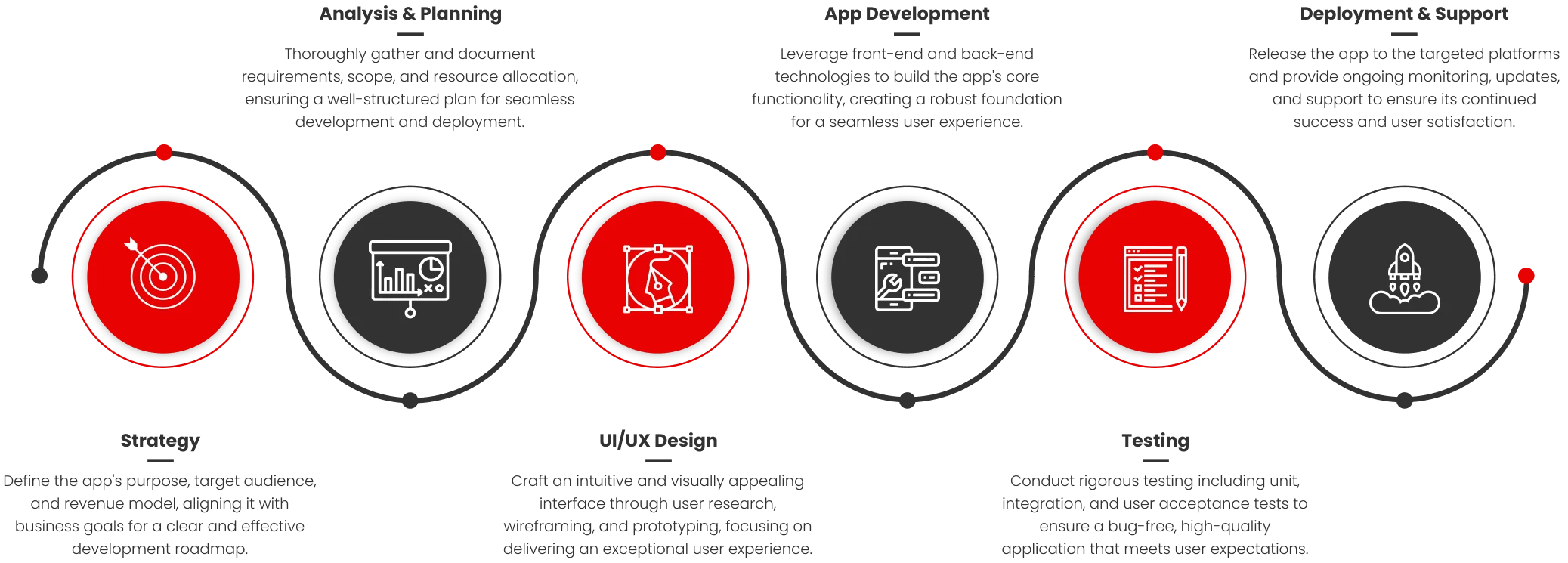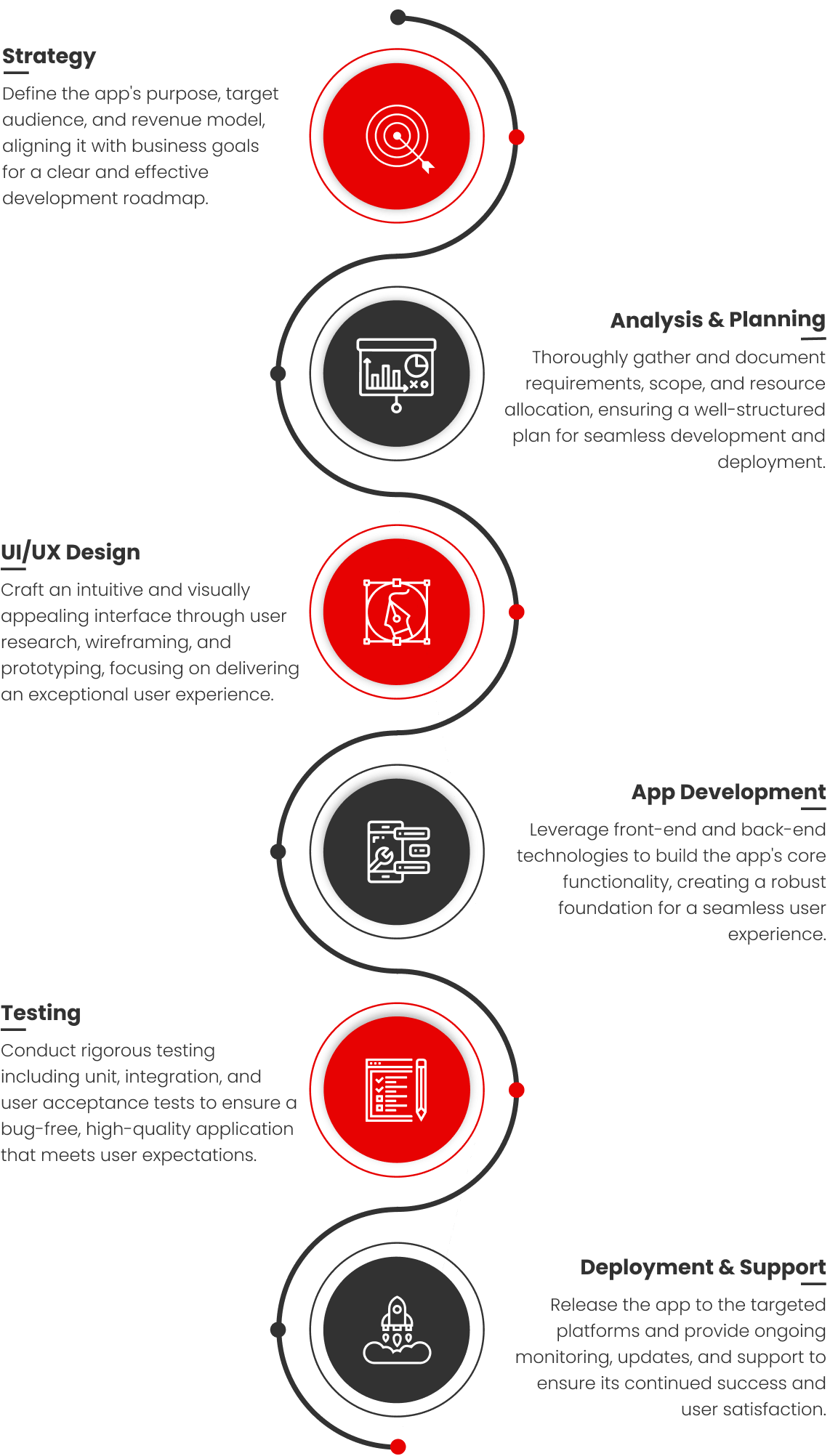Results:
Enhanced Customer Experience: Customers were able to visualize their projects through AR, gaining a clearer understanding of their designs, which significantly improved satisfaction and reduced revision requests by 35%
Improved Project Efficiency: IoT-based progress tracking, combined with AI-driven predictive analytics, reduced project delays by 25%, optimized resource allocation, and improved adherence to deadlines.
Cost Management: The AI tools helped contractors predict costs more accurately, preventing budget overruns and improving financial management, resulting in a 20% reduction in overall project costs.
Better Communication: The centralized platform for communication and real-time updates led to improved collaboration between contractors, project managers, and customers, reducing misunderstandings and enhancing overall project coordination.
Increased Safety: Real-time monitoring and AI-powered safety risk assessment reduced accidents on-site by 15%, ensuring a safer working environment for all personnel.
IoT Integration:
We integrated IoT technology across the construction site, allowing for real-time data collection and monitoring of various aspects, including:
Site Monitoring: IoT sensors were deployed to monitor environmental factors such as temperature, humidity, noise levels, and air quality to ensure the safety and comfort of workers and compliance with regulations.
Equipment Health Monitoring: IoT-enabled sensors were installed on heavy machinery and construction equipment to monitor their health and performance. Data such as engine temperature, fuel consumption, and maintenance schedules were collected and analyzed to prevent breakdowns and optimize equipment usage.
Inventory Management: Smart sensors were used to track material usage and stock levels in real-time, reducing waste and ensuring that materials were readily available when needed.
Progress Tracking: IoT sensors integrated with drones and cameras provided real-time images and videos of the construction site, giving project managers an accurate view of construction progress without needing to be physically present.
Augmented Reality (AR):
AR was integrated into the mobile application to allow both contractors and customers to visualize the construction project in a completely new way:
Design Visualization: Customers could use their smartphones or AR glasses to see a 3D model of the construction site, including a virtual representation of how the completed building would look in real life. This feature was especially valuable for clients to visualize complex designs, layouts, and custom features before construction began.
On-site Design Changes: Contractors and customers could overlay digital models onto the physical space, allowing for quick on-site design revisions. This AR functionality helped in visualizing design adjustments, such as layout changes, finishing touches, or even furniture placement.
AR for Site Inspections: Contractors could use AR to compare the actual construction against the digital blueprints, ensuring that the work was being executed according to the design specifications and identifying discrepancies early.
Artificial Intelligence (AI):
AI was used to enhance the construction project’s efficiency and decision-making capabilities:
Predictive Analytics for Resource Allocation: AI algorithms analyzed historical project data and real-time inputs to predict future resource needs (e.g., labor, materials, machinery). This helped project managers optimize scheduling, reduce downtime, and prevent project delays.
Project Timeline Optimization: AI was used to predict potential delays based on weather conditions, site conditions, and resource availability. By optimizing the construction schedule, the platform helped ensure projects were completed on time.
Safety Risk Assessment: AI models analyzed data from IoT sensors, construction equipment, and historical accident data to identify potential safety hazards on the site, offering predictive alerts to project managers and workers to avoid accidents.
Mobile Application Features:
The mobile app was designed to be a comprehensive tool for contractors, project managers, and customers. Key features included:
Real-Time Communication: The app allowed project stakeholders to communicate instantly through in-app messaging, notifications, and video calls, ensuring that everyone stayed updated on project developments.
Task Management & Scheduling: Project managers could assign tasks to contractors, track progress, and schedule appointments or inspections directly within the app. The AI-driven scheduling feature optimized timelines by analyzing resource availability and project dependencies.
Progress Tracking: The app allowed clients to monitor the status of their projects through realtime progress updates, images, and AR views of the site. Clients could also submit feedback or request changes via the app.
Safety Management: The app tracked safety compliance, recorded incident reports, and provided real-time alerts to workers about potential hazards detected via AI and IoT sensors.
Cloud Integration: The mobile app was fully integrated with a cloud-based backend, enabling seamless data sharing between stakeholders, ensuring that all updates, designs, and reports were accessible in real-time.
Innovative Healthcare & Medical Application Overview
We design and develop on-demand doctor apps so carrier
patients can see doctors thousands of miles away. Apps like Conduet-Med are very popular
given the COVID-19 pandemic situation.
With the help of this medical app, online visits to doctors for treatment and care
are made easier. This app is for certified physical and mental health professionals.
This app allows patients to make requests by entering details and requesting medical
services. The doctor accepts this request and can then add notes or contact the patient
to discuss diagnosis and treatment.
Our clients are from the United States and are entrepreneurs who are concerned about
health issues. Even if the patient needs urgent care, the doctor is not available around
the clock. He decided to create an on-demand app for doctors that connects doctors and
patients so that everyone has an equal opportunity to receive health care.
Our Process


Our flexible app development team is always ready to take on challenging projects. Our cost-effective solutions catered precisely to making your business grow!
get a free quoteClient Success
What they’re saying
The Appicoders team is great for the job. Every part of the process went according to the agreed schedule and the finished prototype was met and in many cases exceeded my expectations. While Appicoders isn't the most price competitive among the offers I've received, the quality of their work, professionalism, and products makes the extra cost worth it. I highly recommend their service and will continue to use it for future projects.

kevin martin
Customer
I appreciate the support Appicoders has to offer. Their team is very receptive to corrections and improvements and had no problems with change requests. The project manager they have is very professional and always has great solutions to offer. Moreover, their commitment to customer success and fair pricing make them ideal partners for future projects.

Jessica Brown
Customer
I can't say enough about how great Appicoders has been as a partner over the past year. They always push the project forward and guarantee quality checks every step of the way, even the parts of my app that I have to pick up before sending it to development. I will definitely recommend Appicoders to all my clients and place them at the top of my list of partners to work with.

sarah rose
Customer










































